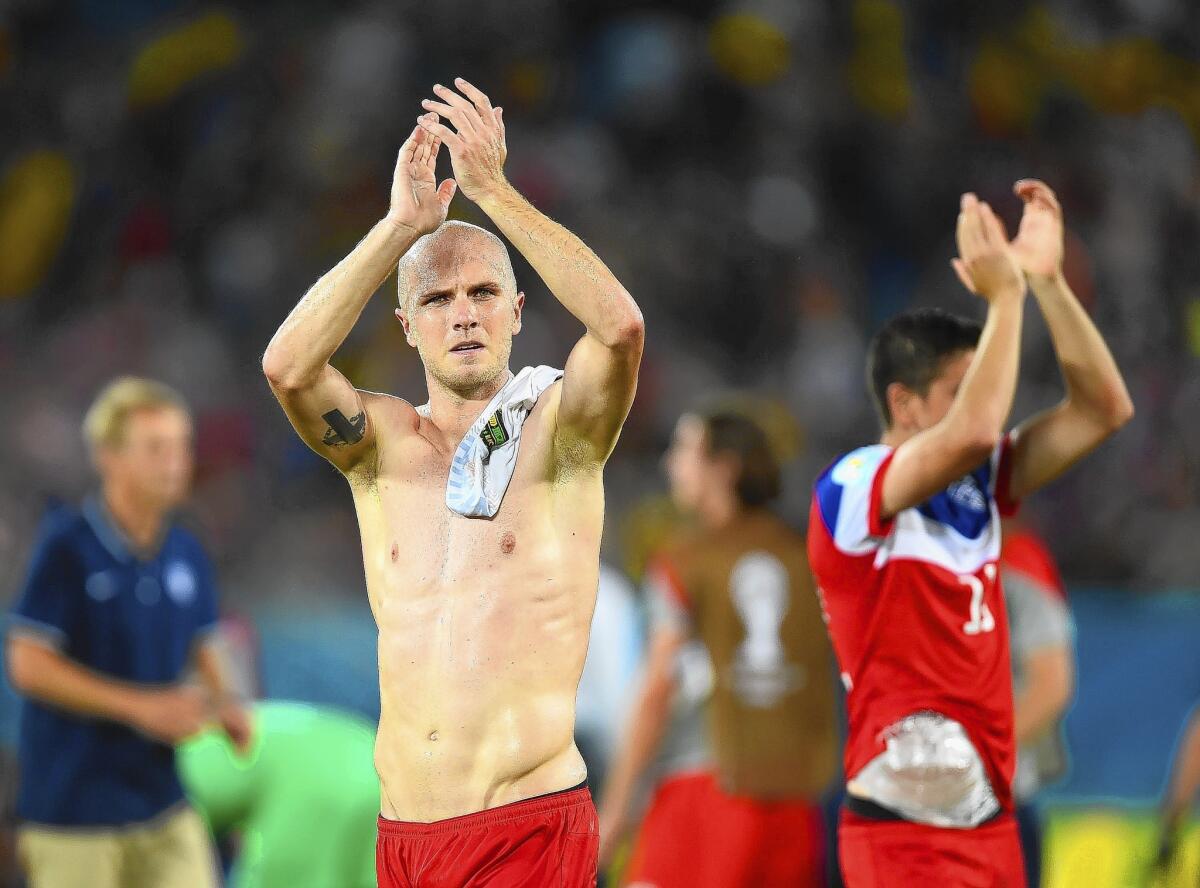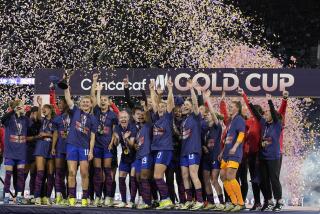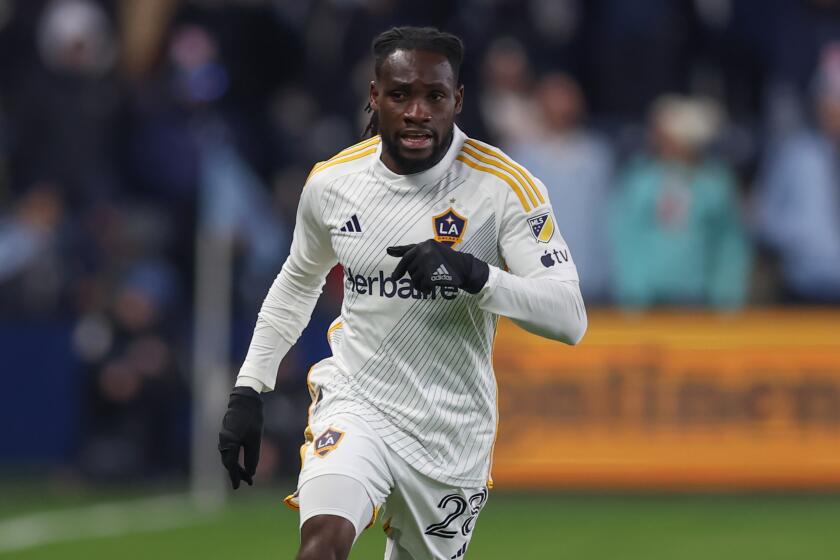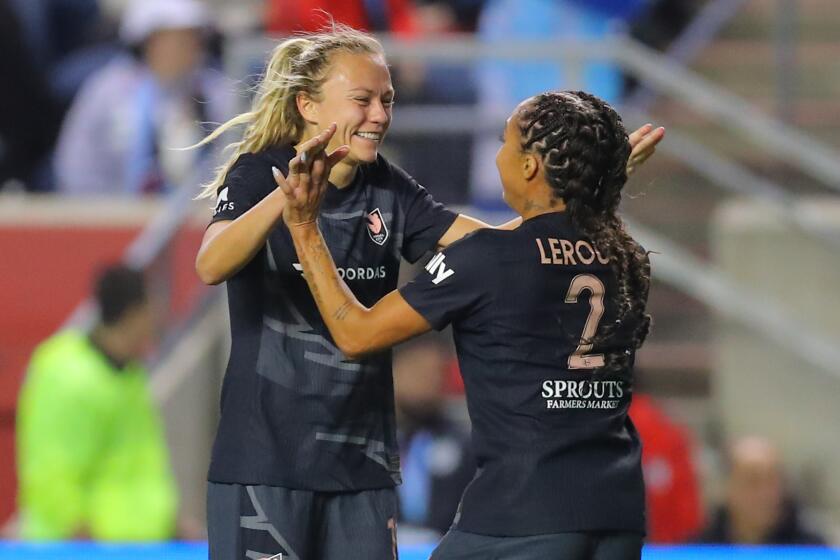Told it wouldn’t survive, the U.S. team starts the World Cup anew

— Michael Bradley’s stare could bend steel.
His teammates on the U.S. national team insist Bradley is lighthearted, a practical joker. But when he turns serious, he’s far more frightening than funny.
And on Saturday, Bradley was very, very serious. Because for him, the World Cup is just about to begin.
“The end of the first round is kind of the first checkpoint to see who is able to deal with all the challenges of the first three games, who is able to survive and come through the group,” he said. “Now you have 16 teams left and it’s simple. The tournament starts over and the margin of continuing on and going home becomes so small.
“We’re certainly proud of what we’ve done so far just to get out of the group. So there’s certainly a feeling of satisfaction and excitement. But we want more.”
Their first test comes Tuesday when the U.S. meets Belgium, a team it hasn’t beaten since 1930. The deep and talented Europeans came into the World Cup as dark-horse favorites, but they haven’t played like it. Although they won all three of their group games, they did so in unconvincing fashion, winning each by just a goal.
The Americans, on the other hand, have overperformed. Told they wouldn’t survive the first round, they beat Ghana on a goal in the final minutes, held on for a tie against Cristiano Ronaldo and Portugal, then did just enough against Germany to advance on goal differential.
While that may have surprised some, it didn’t surprise anyone in the U.S. locker room, Bradley said.
“We have big belief in ourselves,” he said. “When we needed to defend and stick together and keep our lines tight and closed down and fight, we did that. When we needed to score, we scored. Those are all positives.
“But at this point that stuff is all over. It’s a knockout tournament now. You step on the field knowing that game could be your last. You take each game, honestly, minute by minute trying to understand what’s needed, trying to do anything you can to make sure we keep this thing going.”
But time, which was once on the Americans’ side, is now the enemy. The U.S. had six months to prepare for their opponents in group play; it has four days to prepare Belgium — a team it has played, and lost to, twice in the last three years.
“It’s a very good team, a team full of players who are playing at the highest level in Europe for the biggest clubs,” Bradley said. “When you look over the past few years, when you look at the quality of their players, it certainly has to be talked about as one of the best teams in Europe, and so we have a lot of respect for them.
“But as a team we feel like we have a good understanding of what they are all about and the way they play and what kind of makes them go.”
Of more importance, however, is the fact the format has changed from the three-game group stage. Make a mistake in the first round, as the U.S. did in the final seconds against Portugal, and there are two other games to make up for it. Make a mistake now and your World Cup is over.
“It’s a one and done,” defender DaMarcus Beasley said. “It’s all about who wants it more and who goes to the next round. The group stage is out of our minds. It’s the last 16 teams in the World Cup, so you’ve got to give everything, defending and attacking.
“You can’t leave anything on the field for these type of games.”
No one knows that better that Beasley, the only U.S. player to appear in four World Cups. In three of those tournaments the U.S. made it to the second round. Only once did it go beyond that.
For Beasley, who is 32, this could be his last chance to correct that.
“This is what we live for,” he said. “You live to play these types of games.”







